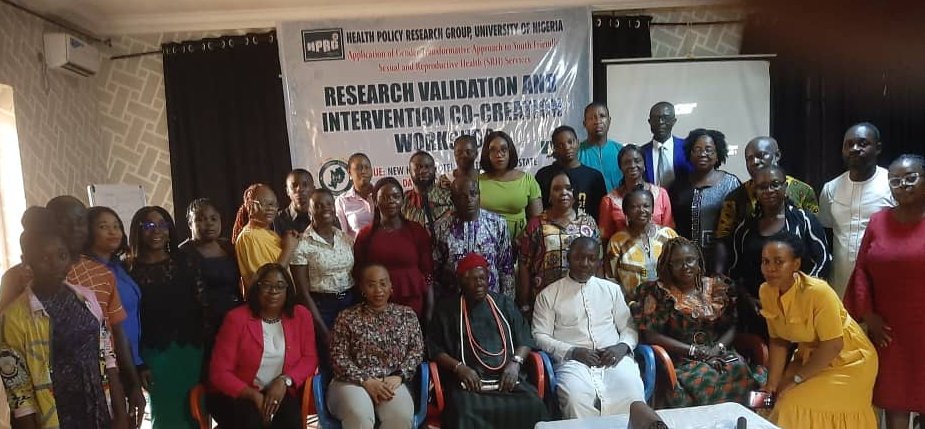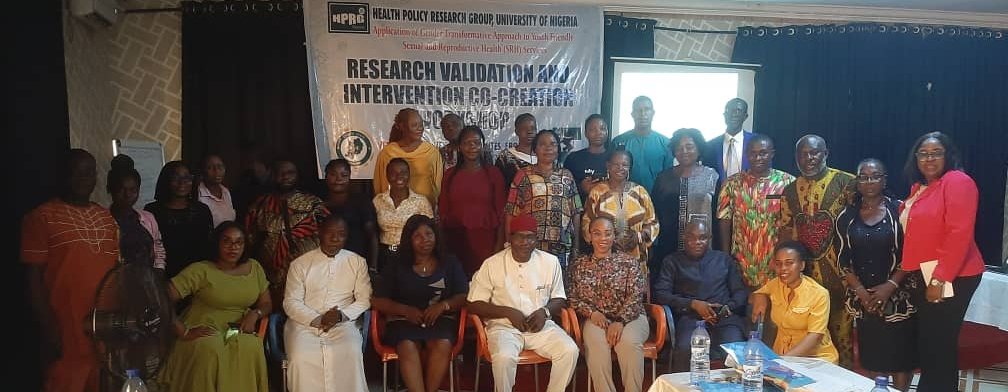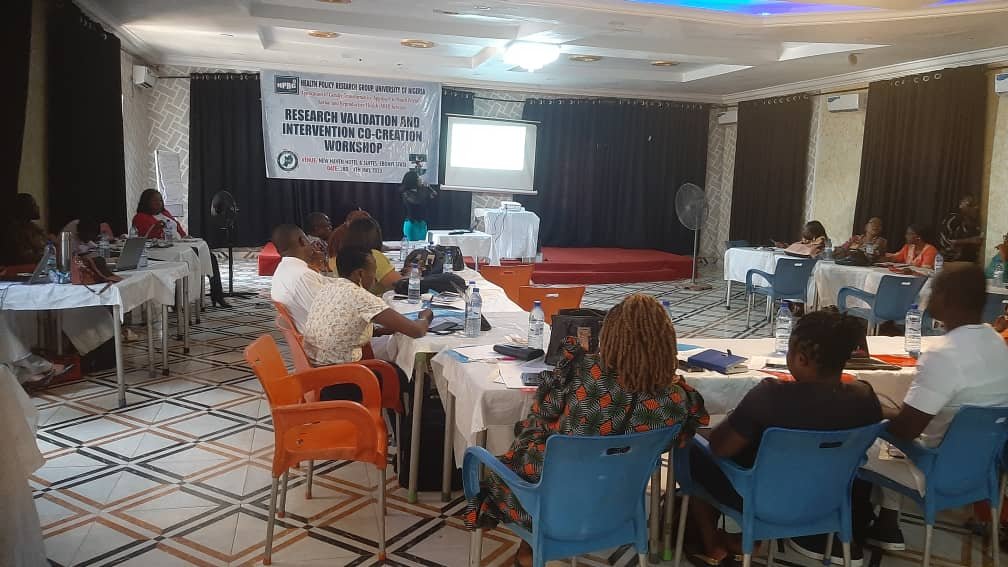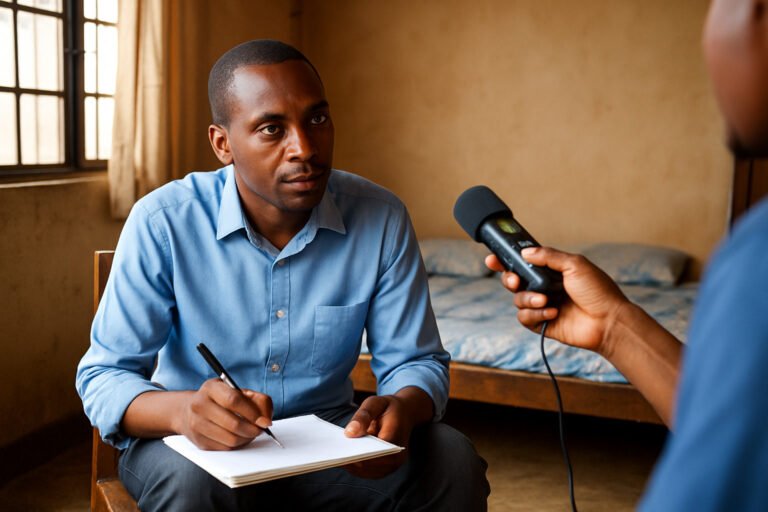Some facts about the sexual and reproductive health of young people
Adolescents in low- and middle-income countries (LMICs) contribute an estimated 21 million pregnancies yearly. Half of these pregnancies are unplanned, and half of them end in unsafe abortions.
One in every five girls in Nigeria between ages 15 and 19 has commenced childbearing. Early childbearing has negative consequences on the physical and mental health of girls. Up to 50% of dropout among adolescent girls is caused by teenage pregnancy.
The risk of acquiring a sexually transmitted infection (STI) is highest among young people aged 15–24. The most recent National HIV & AIDS and Reproductive Health Survey (NARHS) reported that about 9.8% of young people in Nigeria experienced symptoms of STI in the year preceding the survey.
Primary health centres are not meeting the SRH needs of young people
One way to ensure that young people have access to lifesaving SRH information and services is through viable social services like counselling and youth-friendly centres. Unfortunately, such centres are scarce in Nigeria, creating the need for replacements through primary health centres (PHCs). PHCs are well-positioned to address the SRH needs of young people due to the availability of trained health workers, and the possibility of finding social service professionals like social workers and psychologists to work in primary healthcare facilities.
“Think about the 17-year-old pregnant Sophia who resides in a remote village in Nigeria where the only skilled health worker is in the PHC, or the 21-year-old Jimoh who has an STI and his only access to proper treatment is the PHC.”
The reality here is that the PHC should be the rallying point for young people who need SRH services such as counselling, contraceptives, treatment of STIs, maternity care and post-abortion care. However, PHCs in their current state do not appeal to young people. They (young people) prefer to go elsewhere when they need SRH services, and their reasons are linked to the attitudes of health workers.
The big question here, is – “How do health workers repel young people from PHCs, and why?”
Findings from a stakeholder consultation workshop
Researchers from the Health Policy Research Group, University, University of Nigeria, held a two-day stakeholder consultation workshop at Abakaliki, Ebonyi State on the 3rd and 4th of May, 2023 with stakeholders in adolescent sexual and reproductive health. In attendance, were: relevant officials from the State Ministries of Health, Women Affairs, Youth, Sports, and Social Development, as well as officials from the Ebonyi State Primary Healthcare Development Agency, implementing partners, facility health managers and representatives of adolescents.
Stakeholders lamented that inefficiencies in the Primary Health Care system make it difficult for primary healthcare workers to provide sexual and reproductive health services to young people
In the table below, we highlight how these inefficiencies are making PHCs less appealing to young people, that is the ‘whys’ and the ‘hows’ respectively.
| The ‘hows’ | The ‘whys’ |
| PHCs are not open in the late afternoons or evenings (that is after school or work hours) when young people are able to access services | PHCs do not have the number of health workers that are required to provide 24-hour services |
| The skilled health workers are not available in the PHCs in the evenings. | There is no provision for accommodation for skilled health workers. Or the available accommodation is poorly maintained and not livable. Absence of security in the facilities to provide cover at night for health workers and epileptic power supply with little or no provision of an alternative means of power supply |
| PHC workers do not have the skills or training to provide the services that young people need | Many PHCs are manned by unskilled health workers such as community health extension workers. The State government has not employed skilled health workers to replace the retired workforce and there are no qualified social service professionals like social workers and psychologists. |
| The design of the PHC may not be appealing to young people and may discourage them from seeking care | Many PHCs do not have separate entrances and exits for young people. There is no provision for secluded spaces for young people to receive care |
| Poorly motivated PHC health workers may affect their attitude toward providing friendly care | Many of the health workers at the PHCs are either unpaid volunteers or underpaid workers |
| Non-provision of certain SRH services to young people who come to seek care | Religious beliefs and personal values of health workers conflict with their provision of contraceptive services to young people. Health workers are constrained by the restrictive abortion laws in the country |
What is the way forward?
-
The stakeholders agreed that there is a need for continuous advocacy to the State government to employ more health workers and social service professionals in the facilities.
-
There is a need to integrate the volunteer health workers formally into the health workforce so that they receive payment for their services. This will improve the motivation of these health workers who are a major contributor to the staff strength of the PHCs.
-
The State government should channel funding to improve the working conditions and environment in the PHCs. The Basic Health Provision Fund (BHCF) can be leveraged in funding things that are allowed by the tenet of the funding.
-
PHC-model which is young people-friendly and welcoming to young people was proposed to enable the PHCs to be the first port of call for young people.
-
The research team will go further to implement co-designed intervention strategies at the PHC level to make SRH services more appealing to young people.
Acknowledgement of contributors
| Chinazom Ekwueme (MBBS, MWACP) | Prince Agwu (PhD) |
| Ifunanya Agu (MSc) | Chinyere Mbachu (MBBS, FWACP) |
| Irene Eze (MBBS, FWACP) | Obinna Onwujekwe (MBBS, PhD) |
Photo Gallery











